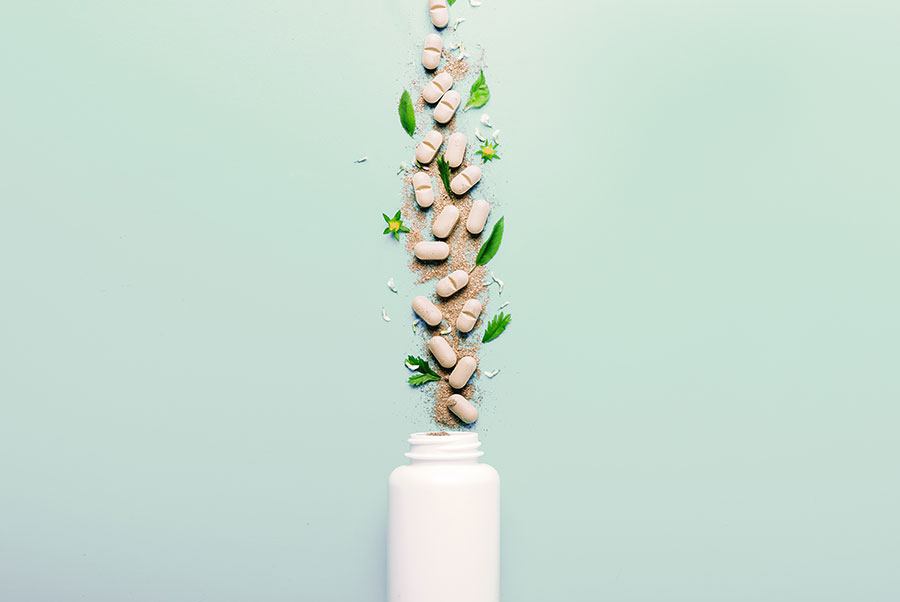Supplements: What you don’t know can hurt you
The potential harm from supplements is a bitter pill to swallow.
There’s a situation repeated hundreds of thousands of times all over the United States. It involves women more than men. You have a minor, or not so minor, medical problem: lack of energy, poor sleep, anxiety. Maybe you want to lose weight. A friend tells you about a herbal dietary supplement she or others have used. It’s wonderful, she says. Try it.
It’s on Amazon or at your local pharmacy. It’s inexpensive, been around long time, and has endorsements and great reviews (4-plus out of 5 stars!). It’s over-the-counter so no need for an expensive, inconvenient doctor’s visit. Best of all, it’s “natural.” So, you buy it. After all, what do you have to lose?
Your liver for one thing.
Think I’m kidding? In a study of case reports to the Drug Induced Liver Injury Network, funded by the National Institutes of Health, 130 of 700 cases of liver damage were linked to supplements. This was considered a conservative number. Here is a real example.
Marta (not her real name), a healthy young woman in her 30s, began taking Lydia Pinkham Herbal Supplement for menstrual issues and menopause on the advice of a friend. Lydia Pinkham (1819-1883), not a physician or pharmacist, was a housewife and mother who concocted her herbal formula in her kitchen. With minor changes in ingredients, it is still used today. One ingredient didn’t change: black cohosh, a supplement linked to liver damage. Another ingredient is motherwort, containing plant alkaloids, chemicals also toxic to the liver.
After a month, Marta’s husband noted she was “as yellow as my car.” She was diagnosed with acute liver failure and eventually needed a transplant. She will take anti-rejection medications the rest of her life, which has grave risks too. Her doctors told all they could find to cause her liver shutting down was the supplement. A big price to pay for a “harmless” supplement.
Maybe this was a fluke. Tragic, but a fluke. There still are millions of people taking daily herbal dietary supplements containing who knows what? They don’t know because supplements are not regulated. They are regarded as food, not medicine, and assumed safe.
In 1994, President Clinton signed into law the Dietary Supplement Health and Education Act (a somewhat oxymoronic name as we shall see), and supplements no longer need approval by the Food and Drug Administration for marketing or proving efficacy or safety. Only when enough adverse events are reported does the FDA investigate. This laissez-faire approach results in deadly delays getting dangerous products off the market. Ephedra, an ingredient of many weight-loss products, was outlawed only after hundreds of reports of adverse reactions and several deaths were attributed to it.
Even something as simple as green tea can pose a health hazard. Simply brewing and drinking green tea is considered harmless, and even beneficial, with its high antioxidant content. Green tea extract is not the same. Taken in pill form, it contains concentrated amounts of substances including catechins, chemicals that can cause hepatitis and liver failure. Of those 130 cases I mentioned, 24 involved dietary supplements with green tea extract. Ten percent of people experiencing liver failure due to green tea extract die. It is dangerous enough to be one of 15 supplement ingredients no one should take. (See sidebar.)
What is the lesson here? Never assume anything when you are putting something in your body. Misconceptions about over-the-counter medications and supplements mean people think something purchased without a prescription is safe. Tell that to those whose liver was killed by acetaminophen (Tylenol). Anything with a therapeutic effect also has the potential for an adverse effect if you take too much, take it improperly, or with something that may cause a harmful reaction.
People mistakenly believe if something is “natural” it is, at best, beneficial and, at worst, harmless. Curare, Foxglove, and Botulinum toxin are all deadly—and natural.
Even if a product in a nutrition or vitamin shop may react with your prescription medication in a harmful way. Many older individuals take multiple medications, so always tell the doctor before adding supplements. With some drugs, even certain foods should be avoided; for example, grapefruit and certain blood thinners. Be cautious.
Many herbal supplements are inaccurately or inadequately labeled so what’s in them is unknown. Even when they are listed, you don’t know the strength or, more important, the bioavailability, the portion your body absorbs that exerts its effect.
If you want to take a supplement, tell you doctor so you don’t become a tragic statistic, too.
15 supplements you should never take:
- Green tea extract* – For weight loss.
- Aconite – For inflammation and joint pain.
- Caffeine powder – Improve attention, athletic performance, and weight loss.
- Chaparral* – Weight loss, inflammation, colds, infections, skin rashes, cancer.
- Coltsfoot* – Cough, sore throat, laryngitis, bronchitis, asthma.
- Comfrey* – Cough, heavy menstrual periods, stomach issues, chest pain, cancer.
- Germander* – Weight loss, fever, arthritis, gout, stomach problems.
- Greater celandine* – Stomachaches.
- Kava – Anxiety, insomnia.
- Lobelia – Smoking cessation, respiratory problems.
- Methylsynephrine – Weight loss, improve athletic performance, increase energy.
- Pennyroyal oil* – Breathing problems, digestive disorders.
- Red yeast rice* – Lower LDL (bad) cholesterol, prevent heart disease.
- Usnic acid* – Weight loss, pain relief.
- Yohimbe* – Low libido and erectile dysfunction, depression, obesity.
*These 10 can cause liver damage, among other things.

